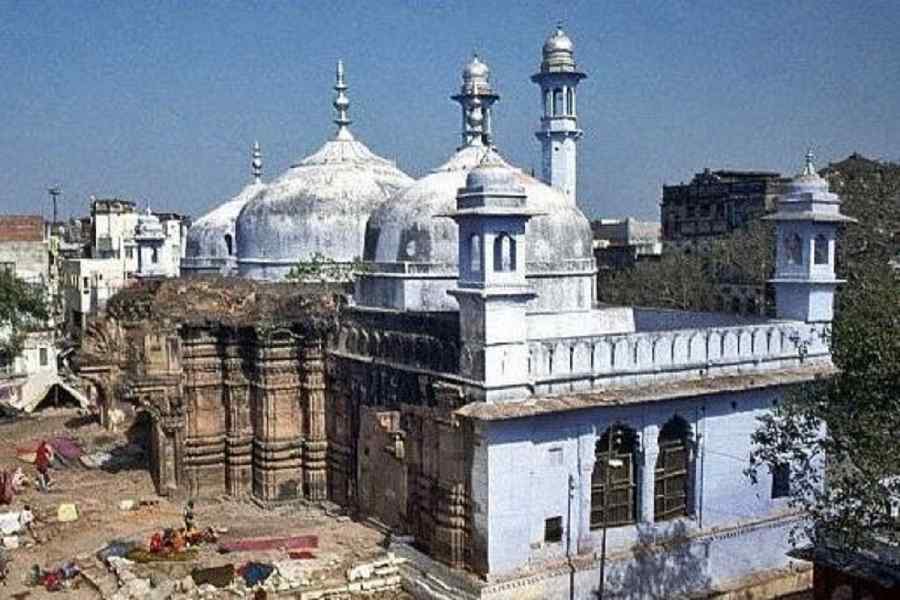The Supreme Court on Friday allowed the Archaeological Survey of India (ASI) to carry out a "non-invasive" scientific survey of the Gyanvapi mosque in Varanasi, laying down that there shall be no excavation of the area or destruction to the structure.
A bench headed by Chief Justice of India D.Y. Chandrachud passed the order on an appeal filed by the Muslim side against Thursday’s Allahabad High Court order upholding a trial court judgment directing a survey of the Gyanvapi mosque, which the Hindu petitioners have claimed was built during Aurangzeb's time by demolishing a portion of the adjoining Kashi-Vishwanath temple.
The bench, which also had Justices J.B. Pardiwala and Manoj Misra, recorded an undertaking from solicitor-general Tushar Mehta, appearing for the ASI, that the survey would be completed without any excavation or causing any destruction to the structure.
The apex court noted that the high court had also ordered several safeguards to protect the structure.
On behalf of the Gyanvapi mosque committee, senior advocate Huzefa Ahmadi argued that the high court direction upholding the survey was contrary to the Places of Worship Act 1991 as the character of an existing structure cannot be changed after the legislation was passed in the wake of the demolition of the Babri Masjid.
Senior advocate Madhavi Divan, appearing for the Hindu petitioners, submitted that all issues had to be raised before the trial court where the Hindus had filed a suit for handover of the property.
The bench noted that on the appeal of the mosque committee, the high court had laid down certain safeguards to protect the interests of both communities.
“The high court was correct in our view to introduce some directions to circumscribe the order of the district judge. The ASI has clarified that there is neither excavation, nor would there be destruction of property," the Supreme Court said.
"We order and direct that the entire ASI survey shall be completed by a non-invasive methodology adopted by the ASI. We reiterate the high court order that there shall be no excavation at the site. The ASI survey report shall be remitted back to the HC and be taken up for trial in the suit,” CJI Chandrachud said.
Citing Order 26, Rule 9, of the Civil Procedure Code, the Supreme Court said that at the moment it could not be argued that the order passed by the trial judge for the conduct of a survey was without jurisdiction.
Justice Chandrachud noted that the proviso states that when a matter requires scientific investigation, a court may set up a commission to look into it and report to the court. According to Rule 10 of the CPC, the commission has to submit a report in writing to the court.










